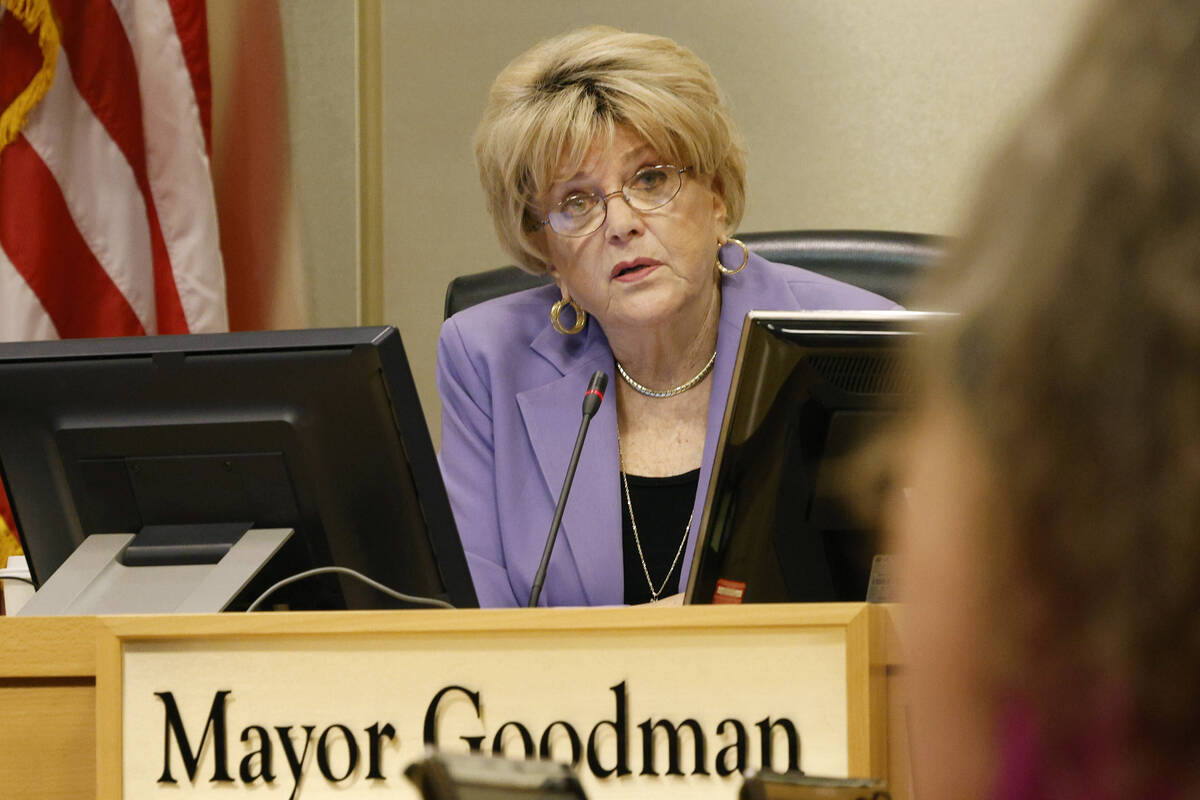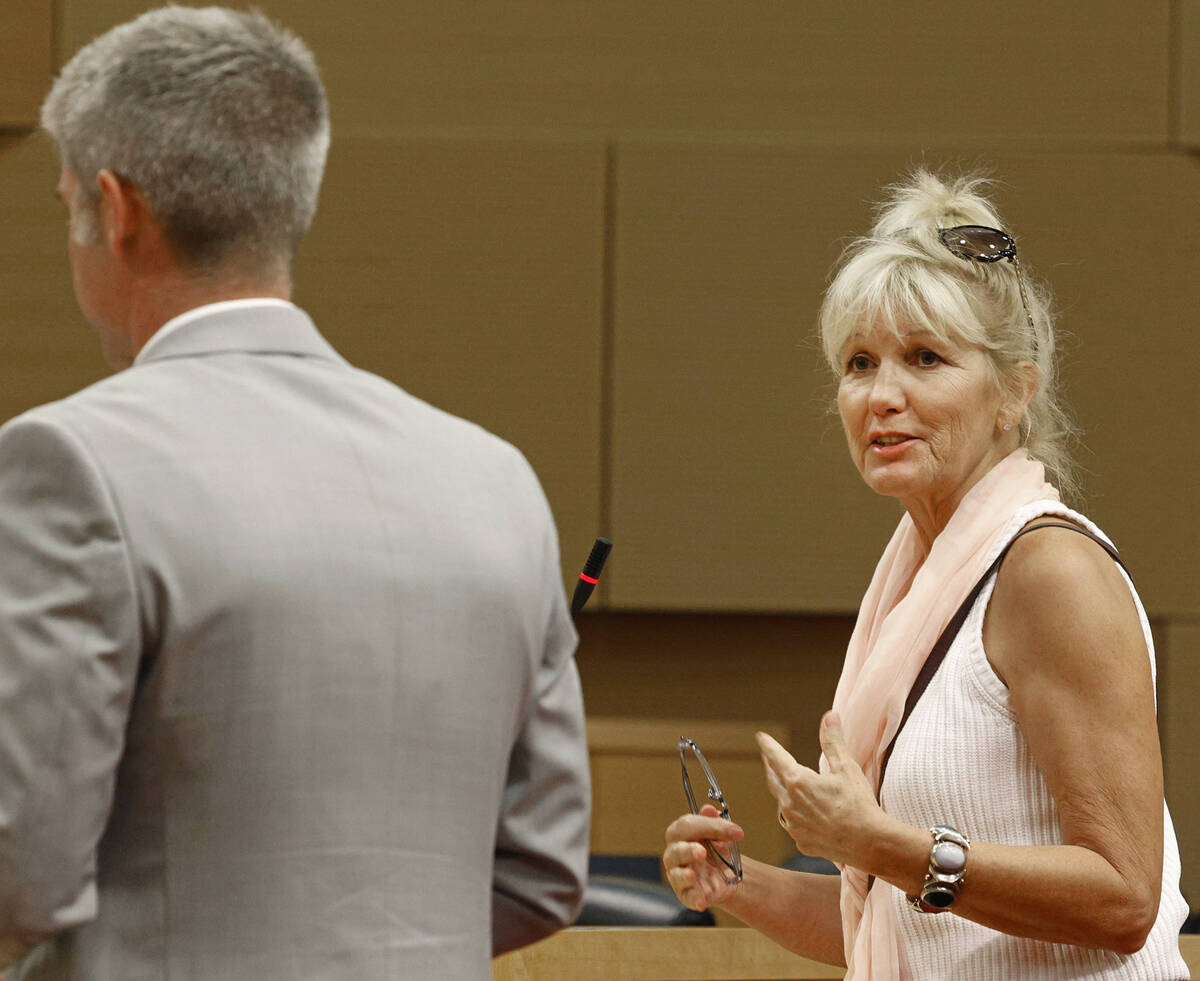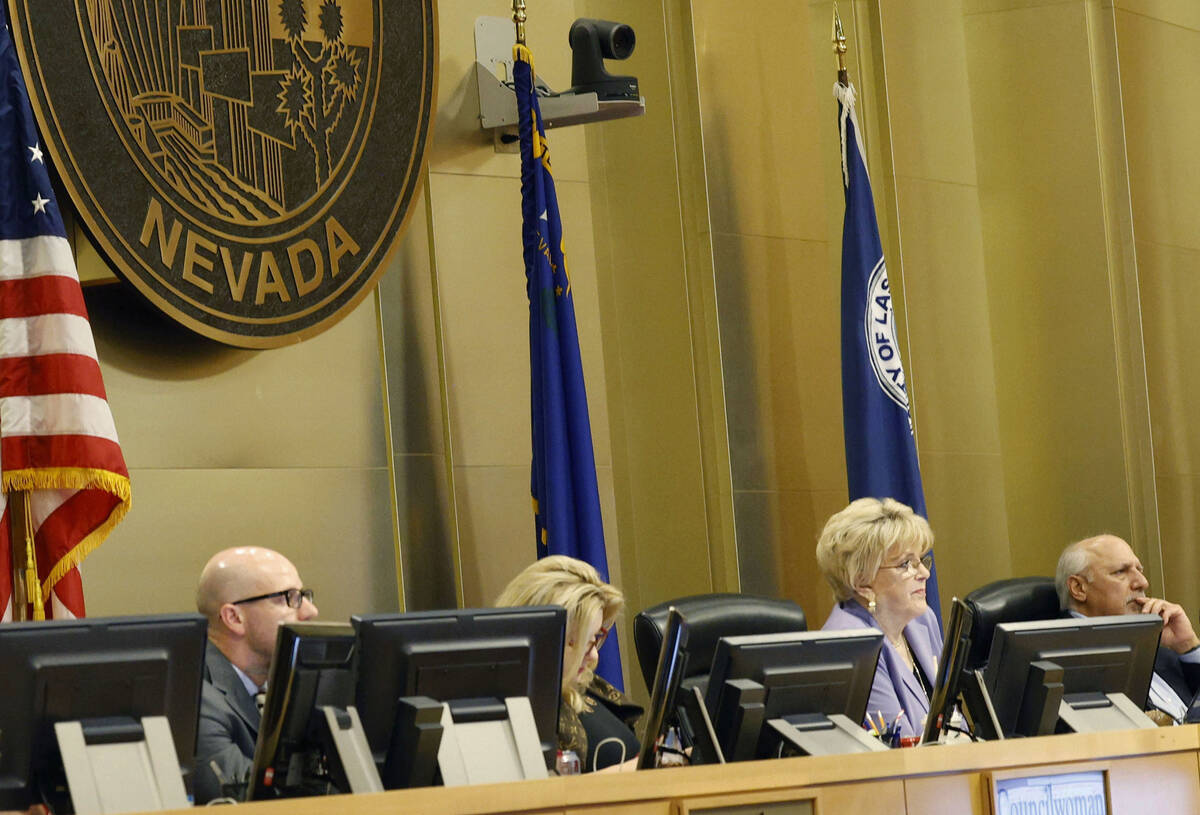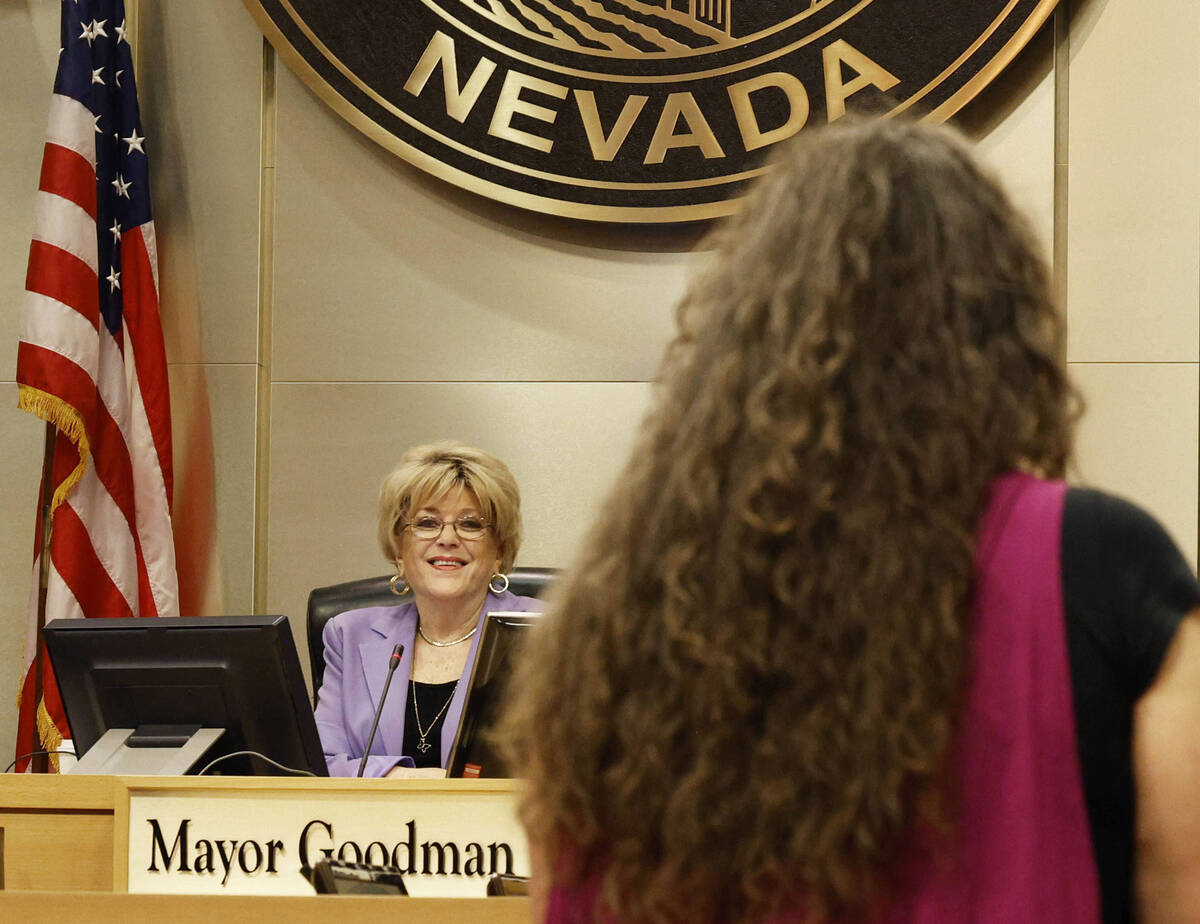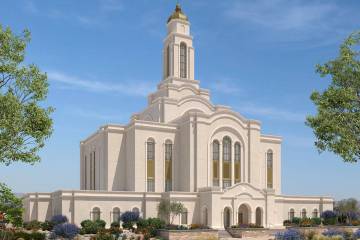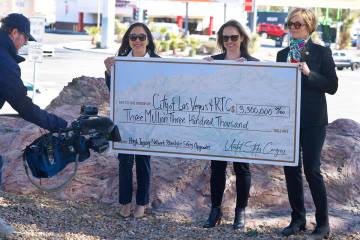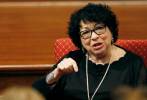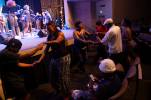Las Vegas council votes to adopt changes to short-term rentals
The Las Vegas City Council voted Wednesday to adopt changes to its short-term rentals ordinance to comply with a Nevada law that recently legalized the practice.
Renting homes on platforms, such as Airbnb and Vrbo, has been regulated by the city for over a decade, so the amendments are “essentially a clean-up,” Seth Floyd, the city’s director of community development, previously told the council.
The changes include establishing a 2,500-foot buffer from businesses with non-restricted gaming licenses, prohibiting rentals at apartment buildings, setting minimal night stays and limiting the number of guests allowed to stay at a rental.
The rental platforms, defined as “accommodation facilitators” in the new ordinance, will now have to obtain business licenses and remit the room taxes they collect back to the city, and they have to share customer data for tax and enforcement purposes.
Civil penalties for those caught breaking the regulations rose from a maximum of $500 to a range between $1,000 to $10,000, depending on the violation.
The changes take effect as early as next week, after Mayor Carolyn Goodman signs the ordinance, a city spokesman said.
Nevada lawmakers in 2021 passed Assembly Bill 363, which Gov. Steve Sisolak signed into law that June. Las Vegas, North Las Vegas and Henderson already regulated them.
A Clark County ban was reversed when the law went into effect on July 1. The county license application opens next month, even as the county and the state are facing a lawsuit from the Greater Las Vegas Short Term Rental Association, which alleges that county rules went further than the state law intended.
Unlike Clark County, which recently established its regulations and used a lottery system to pick prospective applicants, Las Vegas will not limit how many licenses it issues.
Rules already in place, including a 660-foot separation from other short-term rentals and a requirement about the homes having no more than three bedrooms, limit the number of viable applicants, Floyd said, explaining that only 18 business license applications were submitted in 2021, and that the city is processing an average of one-to-three new applications a month.
“I don’t anticipate a huge rush of new ones because there are so many rules that apply to them, that they aren’t so many places left where you can have one,” Floyd said during a recommending committee meeting last month.
Las Vegas currently licenses just under 200 short-term rental properties, and 138 of them were issued before the city last updated its rules in 2018, Floyd said.
Homeowners who previously obtained a license are exempt from new distance requirements, while the 50 or so who did so after — and new license holders — can only rent a portion of their homes, and are required to stay there while they’re being rented.
The others have to have a representative available to immediately respond to any problems, Floyd said.
The city’s action came on the same day Airbnb introduced “anti-party tools” to screen “potentially high-risk reservations,” the company announced.
According to the company, it will examine properties’ review history, as well as data related to how long the homes were rented, and compare weekday to weekend stays.
“Our announcement today on the new anti-party technology aims to build on that success and continue combating unauthorized parties in order to support our Hosts, neighbors, and the Nevada communities we serve,” the company wrote in a news release.
Contact Ricardo Torres-Cortez at rtorres@reviewjournal.com. Follow @rickytwrites on Twitter.



